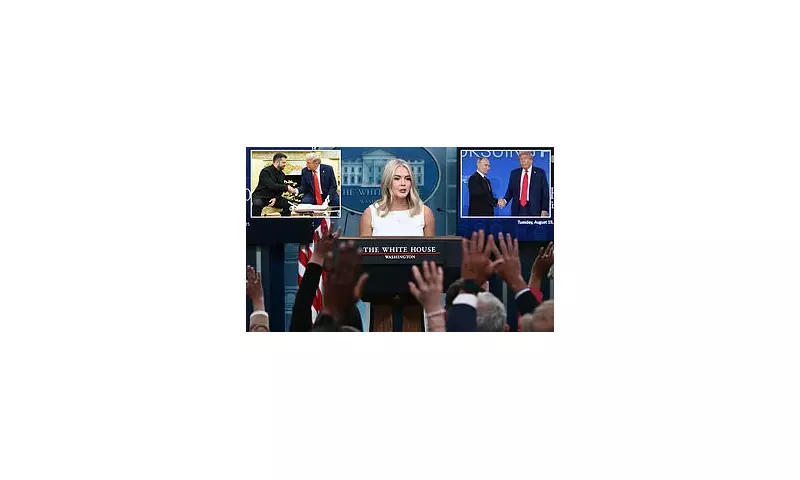
A dramatic confrontation has erupted between the Biden administration and the Fourth Estate, as a top White House spokeswoman publicly accused a New York Times reporter of delivering 'biased and incomplete' coverage in a remarkably tense television appearance.
Karoline Leavitt, the national press secretary for White House Press Secretary Karine Jean-Pierre, launched a stunning broadside against correspondent Katie Rogers during a segment on NewsNation. The exchange has sent shockwaves through Westminster and political circles, highlighting the increasingly fraught relationship between the government and the media.
A Clash of Titans: Spokeswoman Versus The Grey Lady
The explosive moment unfolded when Leavitt was questioned about Rogers' recent coverage. Without hesitation, Leavitt delivered a pointed critique that has since gone viral. 'Katie Rogers is somebody who has… a history of biased and incomplete reporting,' Leavitt stated unequivocally, setting the stage for a major press freedom debate.
This is not an isolated incident but rather the latest salvo in an ongoing battle. The White House's decision to publicly call out a specific reporter from one of the world's most prestigious newspapers marks a significant and aggressive escalation in strategy.
The Core of the Controversy
At the heart of the dispute lies a fundamental disagreement over journalistic integrity and the role of the press in holding power to account. Leavitt's comments suggest a deep-seated frustration within the administration regarding how its policies and personnel are being portrayed to the American public.
The spokeswoman's remarks imply a perception that certain media outlets are pursuing narratives rather than objective facts, a charge that strikes at the very core of journalistic ethics. This public airing of grievances moves the conflict from behind-the-scenes background briefings to the forefront of public discourse.
Broader Implications for Press Relations
This confrontation raises serious questions about the future of government-press relations. The traditional dynamic, however tense, typically maintains a level of professional decorum. This public denunciation signals a potential shift towards more overtly adversarial interactions.
Media analysts are now questioning whether this approach will become normalized, potentially encouraging other government officials to publicly challenge reporting they deem unfavorable. The precedent set by this exchange could have lasting implications for how information flows between the White House and the people it serves.
The fallout from this remarkable clash continues to develop, with press freedom advocates and political commentators closely watching how both The New York Times and the White House press office navigate this newly declared cold war. The integrity of public discourse and the vital role of a free press hang in the balance.





